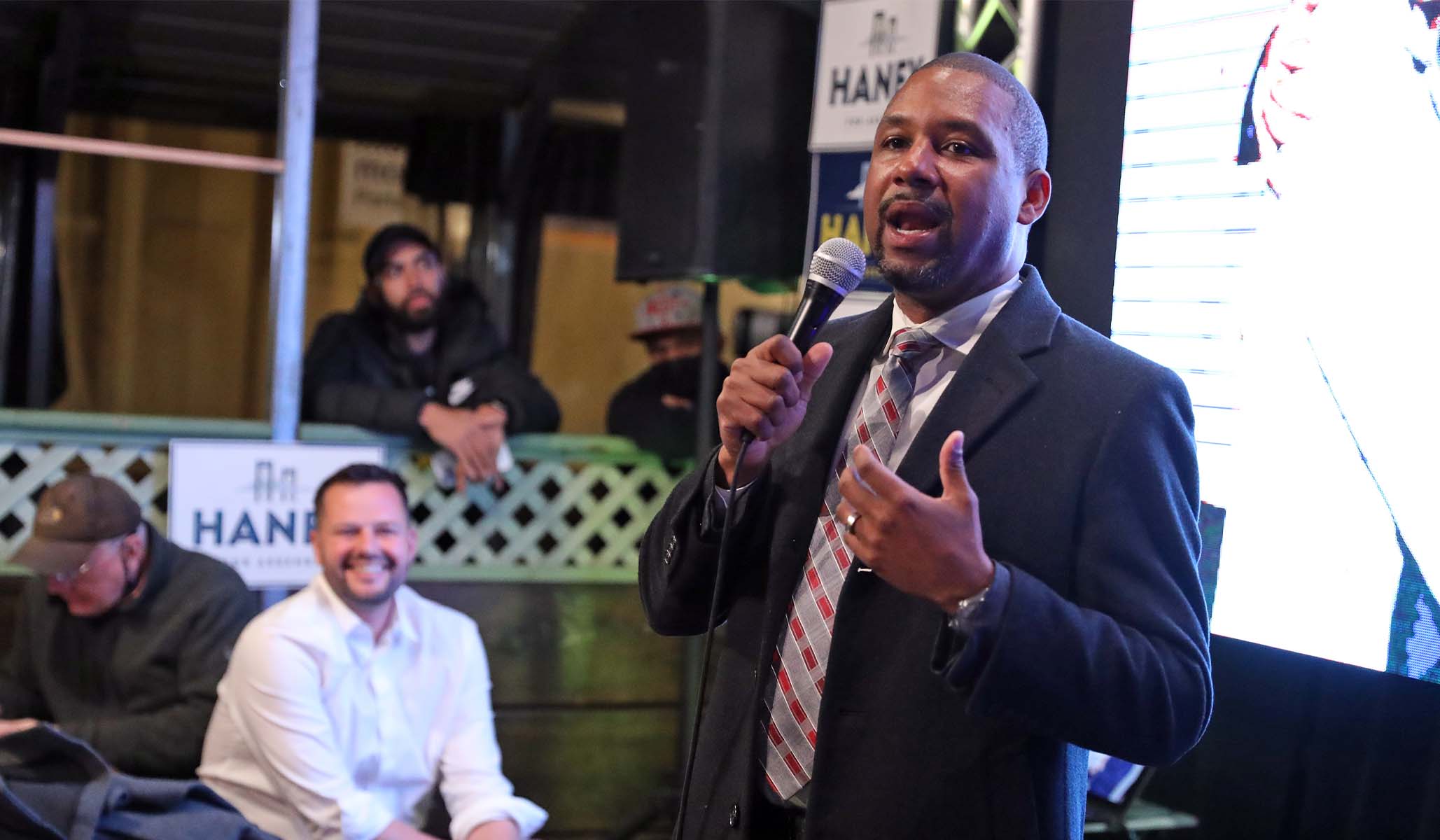A San Francisco advisory committee's recommendation that the city pay out hefty reparations to the city's longtime black residents does not go far enough toward making things right, a member of the San Francisco Board of Supervisors told National Review on Tuesday.
Supervisor Shamann Walton, who wrote the legislation that formed the committee two years ago, said that the proposed $5 million payment per qualifying person is actually "much less than a lot of the projections that people say black people should receive for reparations here in the United States."
"You can Google a lot of the reparations work that has been done and look at the monetary formulas that people have put together and most certainly the 5 million is a very minuscule number compared to a lot of research that has been done over the past couple of decades, quite frankly," said Walton, who has represented the city’s 10th district since 2019 and previously served as board president.
Asked if there is a figure that he views as more fair or appropriate, Walton responded, "Definitely not."
"I don’t think you can put a figure to taking someone from their country, raping and pillaging their communities, not allowing them the chance to reproduce, not allowing them the chance to raise a family and grow wealth, making them work for free,” he said. “I don’t think there’s a number you can put on what that does to a specific ethnic group or a specific race over the generations to come."
The advisory committee released a draft report last month proposing the city make a lump sum payment of $5 million to black residents who are at least 18 and have identified as black or African American on public documents for at least ten years. Residents must also meet at least two of eight other requirements. Among those requirements is that the resident is "personally, or the direct descendant of someone, incarcerated by the failed War on Drugs" or is a "Descendant of someone enslaved through US chattel slavery before 1865."
In responding to criticisms that reparations are unnecessary in San Francisco because California was never a slave state, Walton, who is black, replied: “In San Francisco, black families were not allowed to be taught but we still had to pay taxes for the education of white children. I would say that black neighborhoods and communities were created here in San Francisco without the benefit of representation. I would say that there were racial restrictions indoctrinated in city policy that said black people couldn’t buy or lease property.”
He added that while people today may argue they never owned slaves, “wealth was transferred to generations of people who are ancestors of people who participated in slavery.”
“So they were direct benefits of slavery, which is why people who look like me … haven’t had the chance to achieve the same level of generational wealth and that has led to the gaps that exist for black folks here in San Francisco and quite frankly, black folks across the country,” he said.
If even just 50 percent of the city's nearly 45,000 black residents met the requirements for the proposed payments, the city would be staring down a $112.5 billion bill. For comparison, San Francisco's entire budget for fiscal year 2022–2023 is just $14 billion. The budget for the entire state is $308 billion.
And that's without considering some of the other proposals included in the report, such as that the city supplement lower-earning recipients' incomes to meet the area median income (AMI) of about $97,000, for at least 250 years. Another recommendation was to create "a comprehensive debt forgiveness program" for black residents to cancel student loans, housing loans, and credit-card debt in an effort to give "Black households an opportunity to build wealth."
If every black resident qualified for the $5 million payment, the city would be on the hook for $223 billion — a cost of $263,000 for every non-black person in San Francisco, according to Steven F. Hayward, a resident scholar at the Institute of Governmental Studies at UC Berkeley.
Walton said once the committee issues their final report in June, San Francisco officials will decide which recommendations are “feasible” and “come up with a way to resource those recommendations. ”
“We’re not even at that point, to where we’re talking about how we will fund certain aspects, but I would say that we’re very fiscally responsible city,” he said, responding to concerns that implementing the plan as it stands could bankrupt the city. “And so we will make decisions that definitely would not harm us as San Franciscans.”
Walton also dismissed concerns that other ethnic groups who feel they have been wronged by the city, including Asians and Hispanics, would be upset by reparations payments to only black residents.
“Were people upset when our Native American communities received reparations? Were people upset when Japanese families received reparations? So for me, I don’t get caught up in the oppression Olympics, I look at the issues and concerns of communities and focus on solutions,” he said. “Everyone knows that black people were negatively impacted from slavery, whether they want to admit it or not and there has not been any form of repair or compensation to those descendants.”

![Breaking: $5 Million Reparations Payment for Black Residents Not Enough, San Francisco Official Says]() Reviewed by Diogenes
on
January 31, 2023
Rating:
Reviewed by Diogenes
on
January 31, 2023
Rating:












No comments: